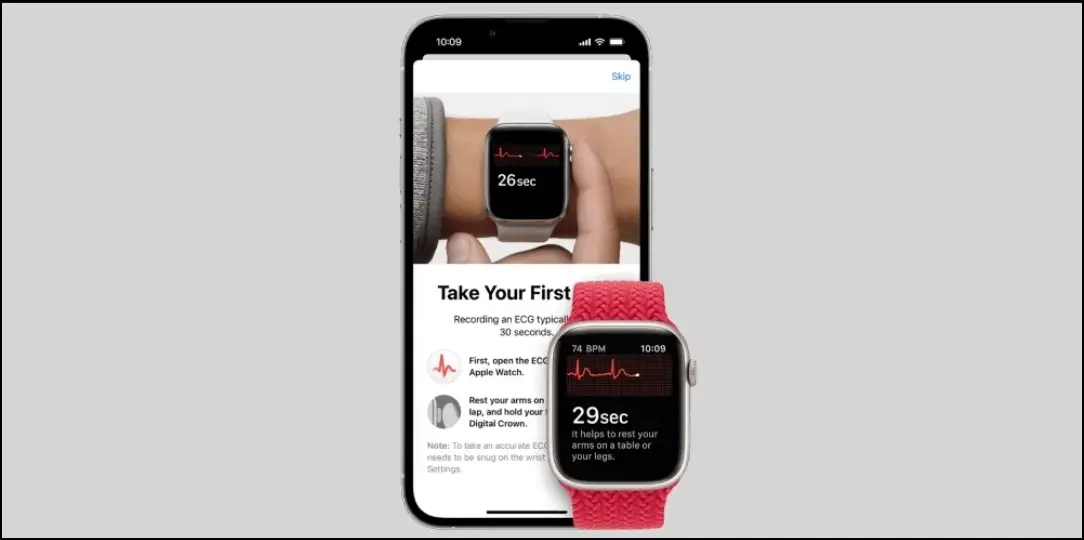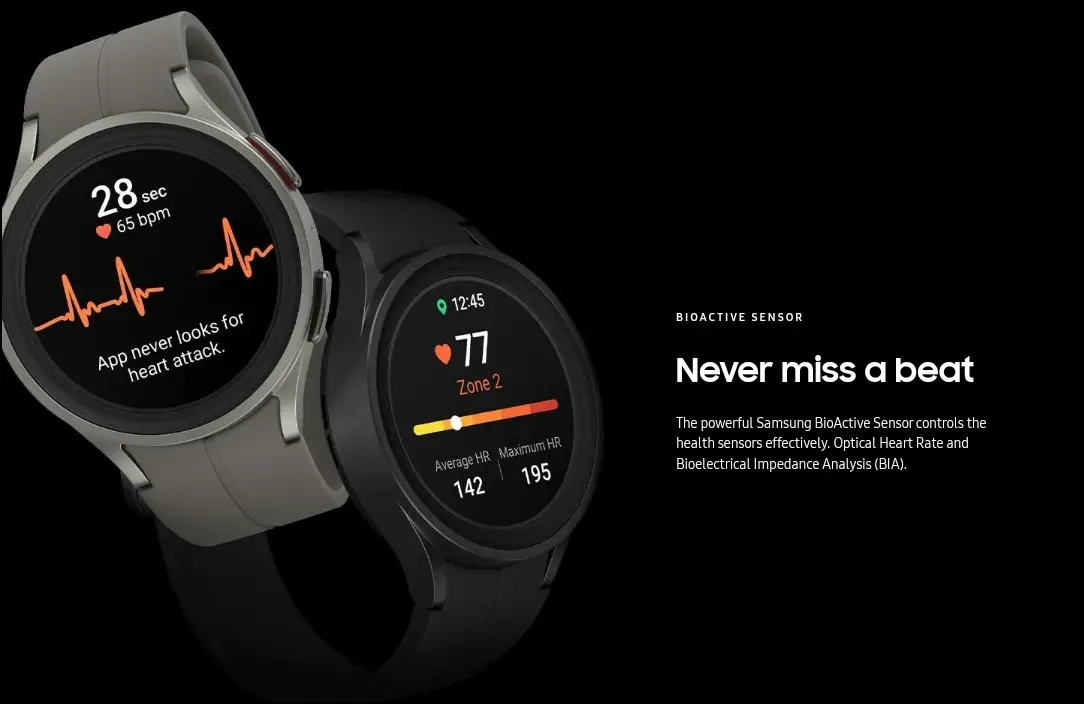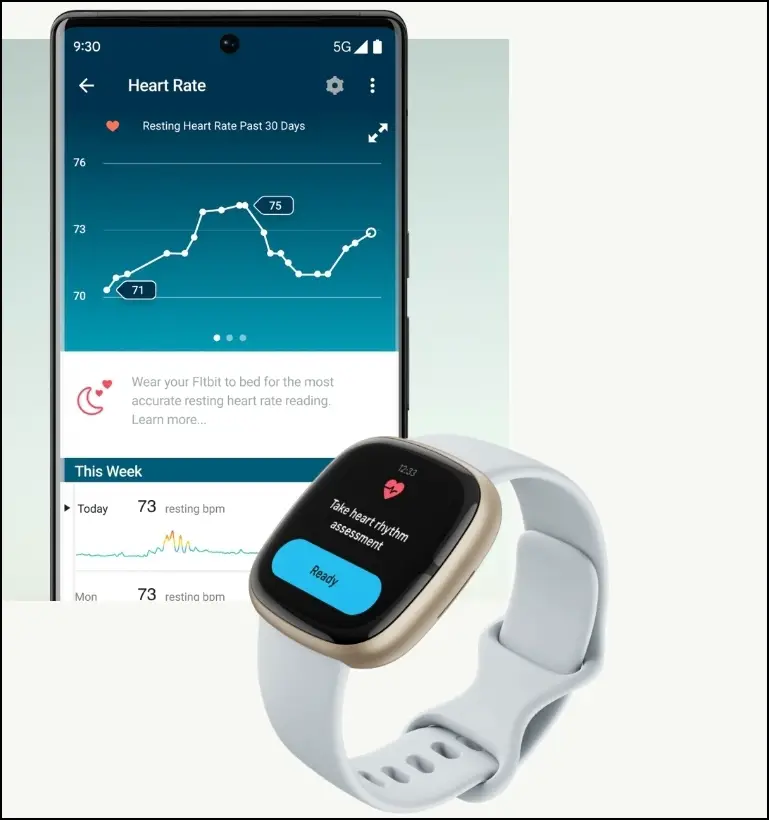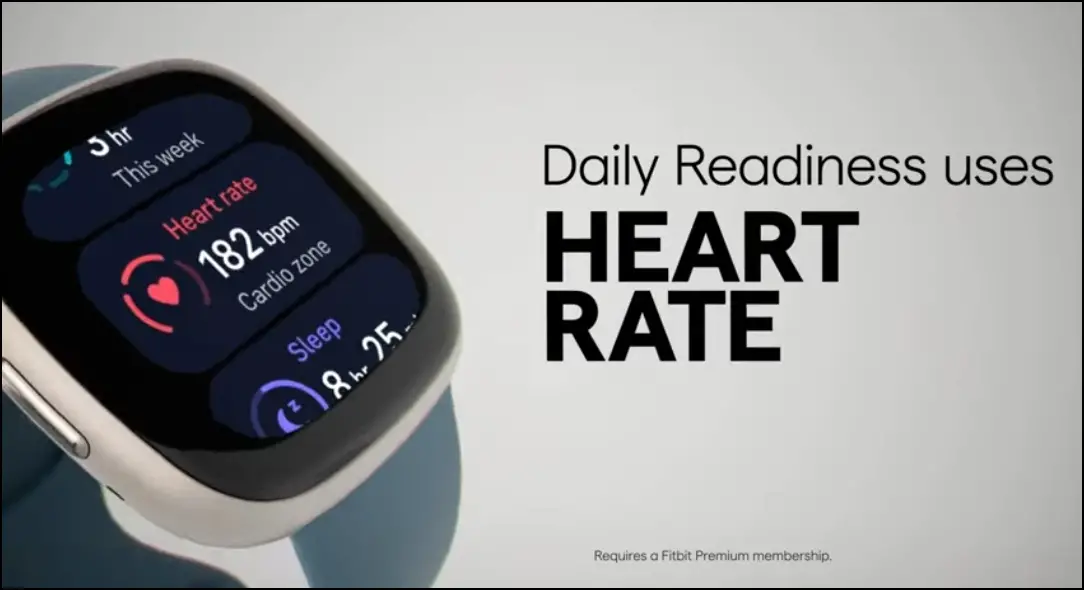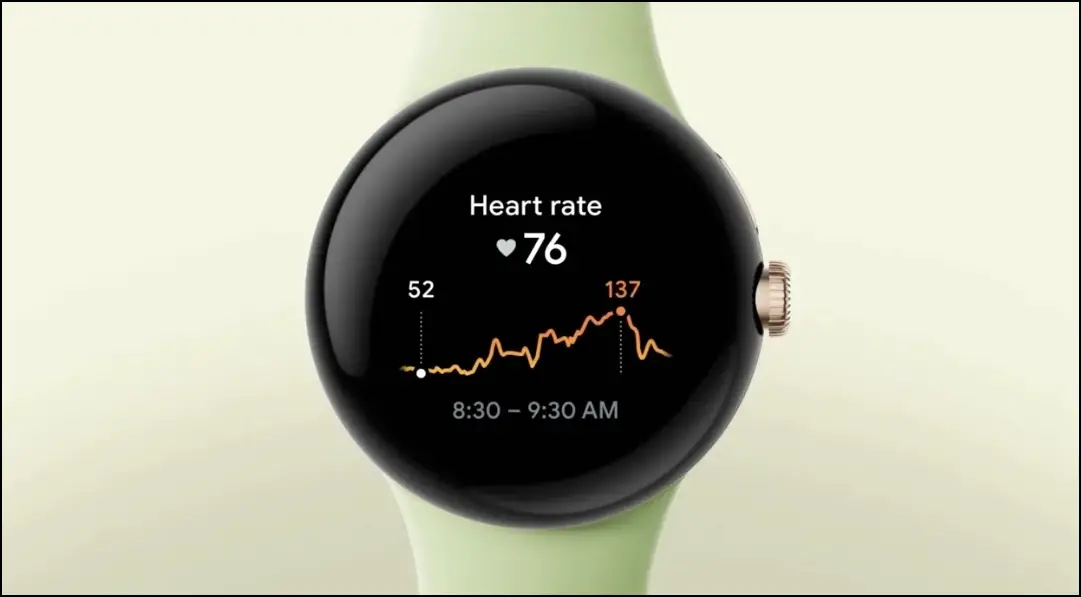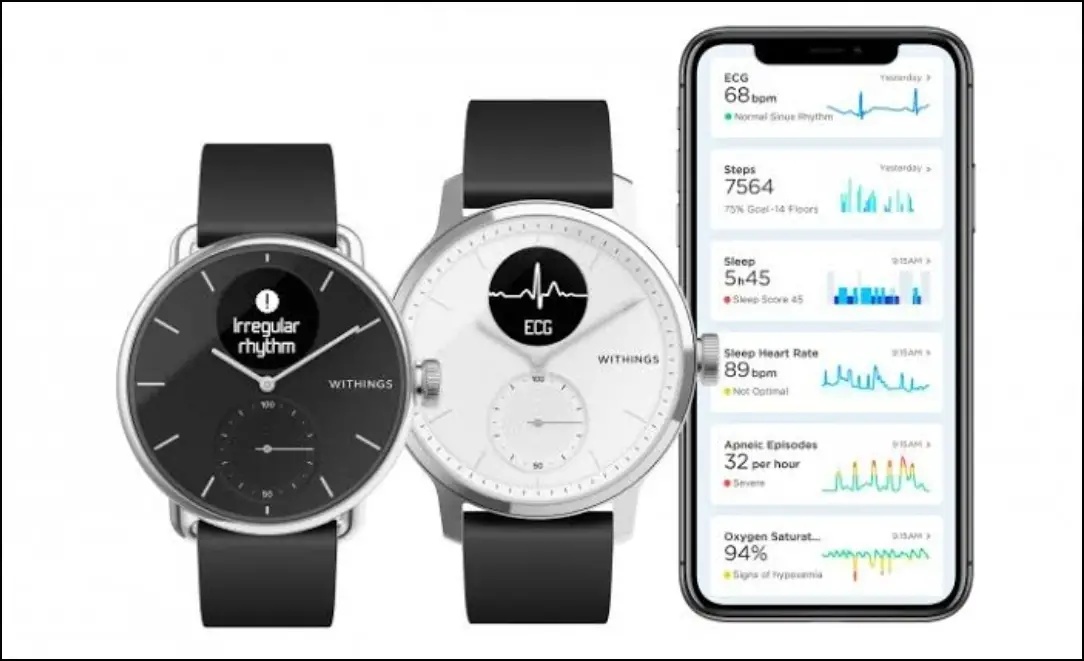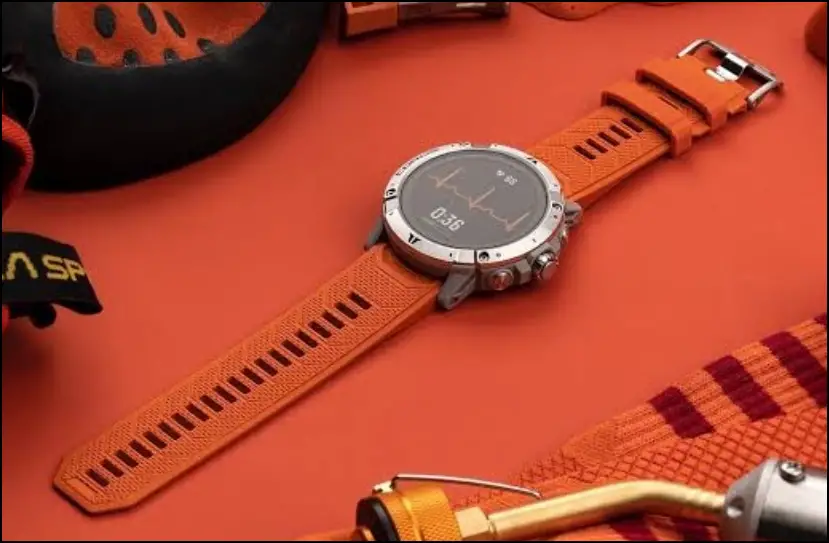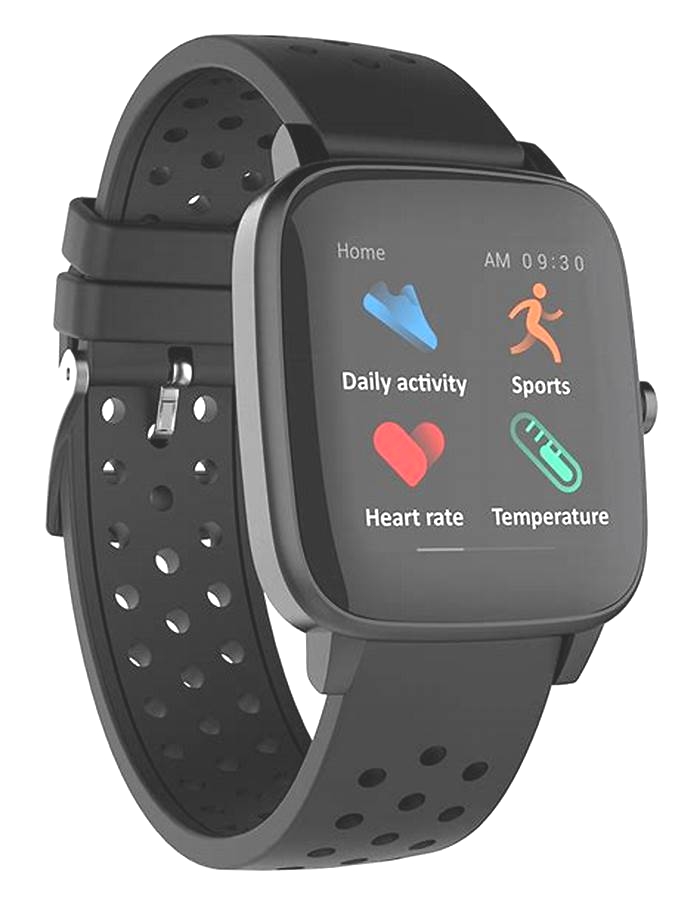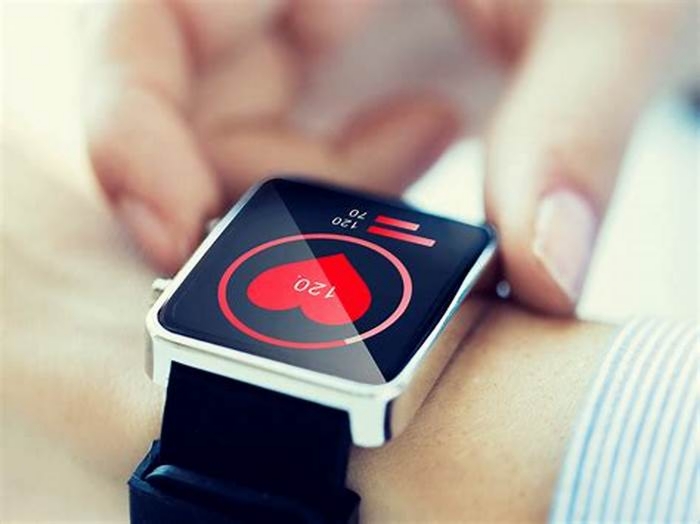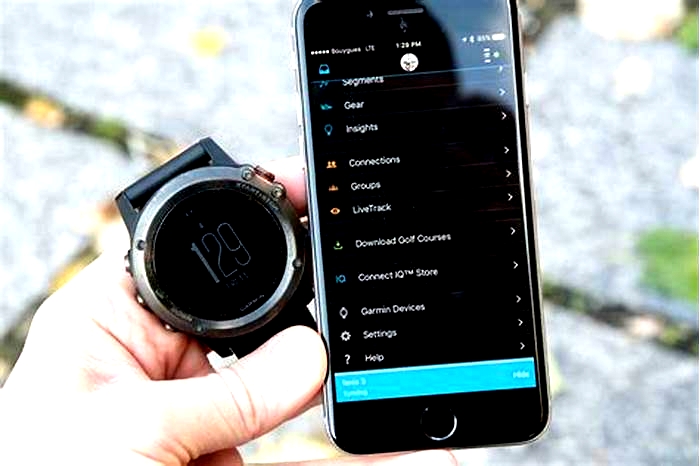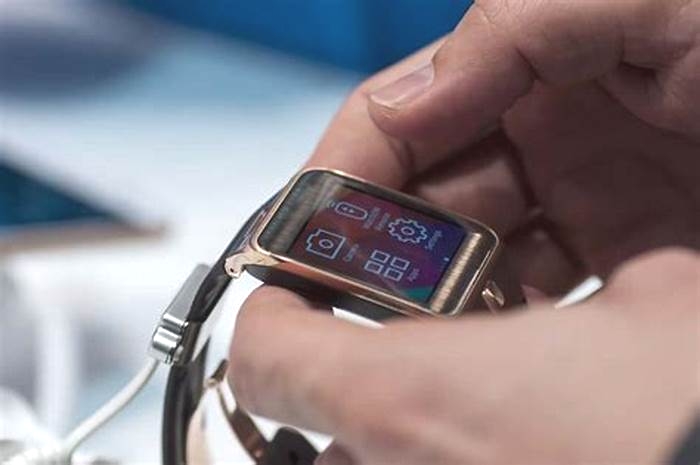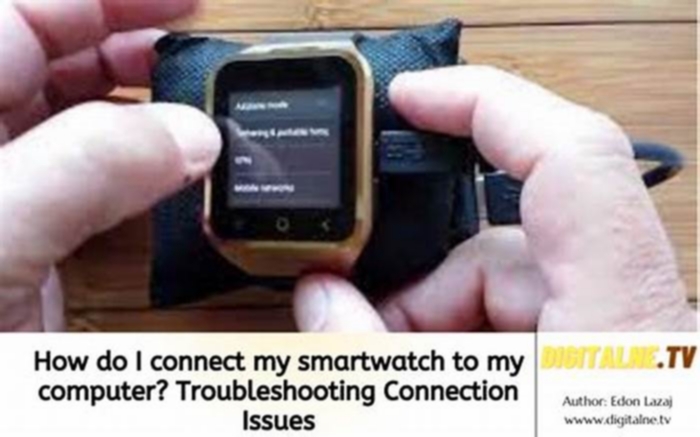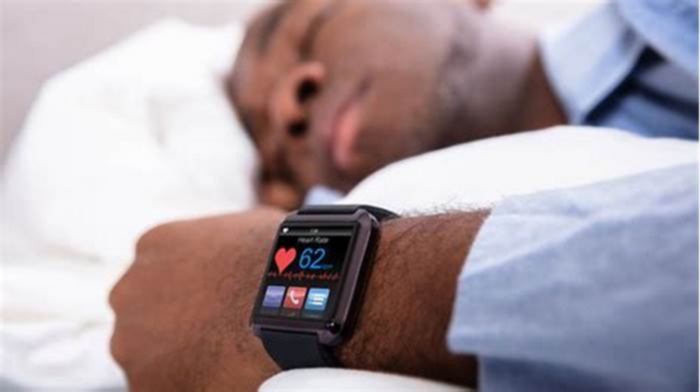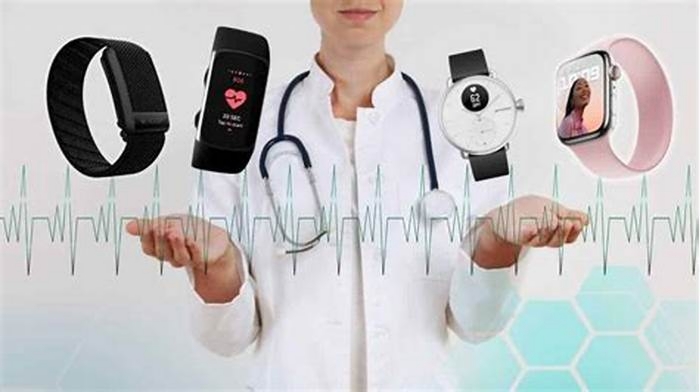Can smartwatches detect health issues
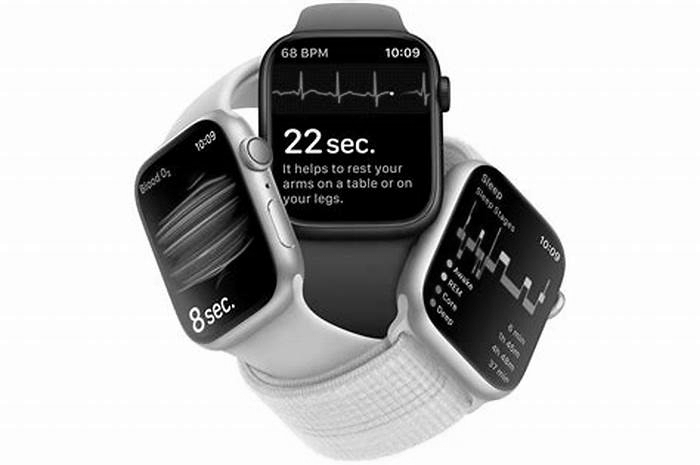
Six health conditions a smartwatch can detect before you can
We may earn revenue from the products available on this page and participate in affiliate programs. Learn more
Smartwatches started out as a shortcut to check your messages and alerts without pulling your phone out, but theyve evolved to become so much more. Now, when you attach a wearable to your wrist, youre not only carrying an extension of your phone, but also a device that helps you monitor your health and wellbeing.
And just as you can use your smartwatchs stats to celebrate a full week of going to bed early, your device can also help you spot and tackle some common health issues.
This is not a doctor youre wearing around your arm though, so its worth pointing out that these detection features are only advisorythey dont replace a visit to your primary physician, but they can definitely tell you when its time to swing by their office to get that checkup.
1. A sedentary lifestyle
Just about every smartwatch out there will warn you if youre spending too much of your day sitting still. Being hunched over a laptop all day with little to no exercise has been directly linked to severe health issues such as diabetes, obesity, and even premature death.
You can use any smartwatch you like to set goals for yourself and follow your own routine, but if you want proactive alerts that buzz your wrist every time youve been sitting still for far too long, your options include any Apple Watch and the Fitbit smartwatches. Unfortunately this feature is not natively available on Googles Wear OS, but you can plug the gap with third-party apps.
If you own a Fitbit smartwatch, for example, open up the Fitbit app on your phone, tap your avatar (top left), and then pick the device youre using. The Reminders to Move entry on the next screen lets you turn the setting on and off.
2. Atrial fibrillation
If youve never heard of it, atrial fibrillation is a heart irregularity in which the upper chambers of the heart flutter instead of beating as normal, which means the organ cannot pump blood as efficiently, increasing the risk of clots. This can result in coronary failure or even a stroke. The good news is that when diagnosed at an early stage, treatments like drugs or surgical procedures can minimize the risk of harm due to this condition
To properly detect the signs of atrial fibrillation, your smartwatch needs an electrocardiogram (ECG) function, which records the tiny electrical signals that your heartbeat produces. You can find this feature in the most recent smartwatches from Apple, Samsung, Fitbit and Withings, and they can look out for atrial fibrillation signs and warn you if you should consult a doctor.
Check the instructions that came with your smartwatch for properly running an ECG. In the case of the Apple Watch 4 and later, make sure its fitted snugly to your wrist and then launch the gadgets dedicated ECG appthe one that looks like a red heartbeat scan on top of a white background.
3. Sleep apnea

People who suffer from sleep apnea stop and start breathing irregularly while theyre sleeping. Left untreated, it can lead to higher blood pressure, an increased risk of a stroke, and difficulty concentrating during the day. Although these effects can have severe consequences in the long term, this condition is still vastly undiagnosed. Luckily, this is where a smartwatch can come in.
At the time of writing, theres no smartwatch that will specifically warn you about sleep apnea, but theyll all be able to identify periods of restless sleep. This might mean sleep apnea, though its not a particularly precise way of being alerted to it. If this condition is a concern of yours, look for a smartwatch with a blood oxygen saturation (SpO2) sensor, which can help monitor sleep in more detail.
The Withings ScanWatch is perhaps your best bet for catching this condition since it includes a SpO2 sensor, and is pending regulatory approval as a medical-grade sleep apnea detector. Meanwhile, Fitbit is testing an app update that would be able to detect sleep apnea from the data its devices collect, though its not available in any products yet.
4. Respiratory issues
An SpO2 sensor, sometimes also called a pulse oximeter, can detect issues with your breathinga possible sign of lung diseaseand a growing number of wearables come with one. However, its not on the same level of accuracy and precision as an ECG feature is for atrial fibrillation, since the sensor can only spot one indicator out of several.
You may have noticed Apple making a big deal out of the blood oxygen sensor built into the latest Apple Watch 6, making this device one of your options if youre looking to detect these sorts of problems. Such a sensor is also available in the Samsung Galaxy Watch 3, the TicWatch Pro 3 running Wear OS, and a variety of Fitbit and Garmin smartwatches.
If youre using a Galaxy Watch 3, open up the Samsung Health app from the app gallery, scroll down the list, pick Blood Oxygen, and follow the instructions on screen. A normal reading is typically between 95 and 100 percent, but this can vary from person to person. Its important to remember these sensors arent yet as accurate as medical devices, so if you get a reading that is outside of these parameters, keep in mind that even if its worth checking with a doctor, it might be nothing.
5. Stress
We should all be keeping a close eye on our stress levels, especially during the troubling times were living in. Accumulated tension can lead to high blood pressure, fertility problems, insomnia, and an elevated risk of heart attack, among other health issues.
The latest Fitbit Sense smartwatch has a strong focus on stress-busting. It comes with an electrodermal activity (EDA) sensor that measures electrical activity in the skin, which can be used to compute your stress levelsthe lower your score, the more stressed you are. This is not an integrated Fitbit feature though, so youll need to launch the EDA Scan app from the watch to get a reading.
Other smartwatches offer tools to help deal with stress, too. The Apple Watch, for example, comes with Apples own Breathe app that encourages regular deep breathing and meditation. While this is an alternative and most smartwatches can now detect prolonged periods of high heart rate, none of them is so direct and purpose-built as the EDA sensor in the Fitbit Sense.
6. Diabetes (coming soon)
Smartwatches are still incapable of detecting if the wearer has an increased risk of developing diabetes, but heart health company Cardiogram is currently investigating it in the hopes of developing an app for it.
They currently make apps for Wear OS and the Apple Watch, which can also collect data from devices made by Garmin and Fitbit. The idea is to use deep learning techniques to extract more from your heart rate readings than your smartwatch can do on its own.
Recent research shows Cardiograms algorithms can spot diabetes through the wearables that are on the market today. However, testing and research is ongoing, and this isnt yet a feature of the Cardiogram apps that you can use today.
Can a smart watch detect early risks for certain heart problems?
 Smart watches can do more than just check texts and emails or track your steps and heart rate. Many of the devices measure the electrical activity of your heart, similar to an electrocardiogram (ECG) that you'd get in a doctor's office. Those tests in clinical settings measure electrical activity from 12 different points on the body (on your chest and limbs), for about 10 to 15 seconds. But smart watches measure activity from just one spot (your wrist). Is that enough to detect heart problems? Possibly, suggests an analysis published online Feb. 3, 2023, by the European Heart Journal: Digital Health. Scientists asked 83,000 healthy people (ages 50 to 70) to undergo one-lead, 15-second ECGs that mimicked a smart watch ECG, and then followed their health for up to 11 years. After analyzing the recordings, scientists found that people whose ECGs showed a type of extra heartbeats called premature ventricular contractions were more likely to later develop heart failure; people with another type, called premature atrial contractions, were more likely to develop atrial fibrillation. Smart watches are expected to become increasingly useful in spotting early signs of heart problems.
Smart watches can do more than just check texts and emails or track your steps and heart rate. Many of the devices measure the electrical activity of your heart, similar to an electrocardiogram (ECG) that you'd get in a doctor's office. Those tests in clinical settings measure electrical activity from 12 different points on the body (on your chest and limbs), for about 10 to 15 seconds. But smart watches measure activity from just one spot (your wrist). Is that enough to detect heart problems? Possibly, suggests an analysis published online Feb. 3, 2023, by the European Heart Journal: Digital Health. Scientists asked 83,000 healthy people (ages 50 to 70) to undergo one-lead, 15-second ECGs that mimicked a smart watch ECG, and then followed their health for up to 11 years. After analyzing the recordings, scientists found that people whose ECGs showed a type of extra heartbeats called premature ventricular contractions were more likely to later develop heart failure; people with another type, called premature atrial contractions, were more likely to develop atrial fibrillation. Smart watches are expected to become increasingly useful in spotting early signs of heart problems.
Image: SergeiKorolko/Getty Images
As a service to our readers, Harvard Health Publishing provides access to our library of archived content. Please note the date of last review or update on all articles.
No content on this site, regardless of date, should ever be used as a substitute for direct medical advice from your doctor or other qualified clinician.
15+ Best ECG Smartwatches to Measure Irregular Heart Rate Rhythm
From measuring heart rate to detecting stress using sweat and blood oxygen levels, everything is now possible on your smartwatch. One such useful health feature thats still underpenetrated in the smartwatch market is ECG. Thankfully, the majority of the premium health-centric smartwatches now offer ECG to detect arrhythmia or atrial fibrillation and save lives. In this article, well check the top ECG smartwatches to measure irregular heart rate rhythm.
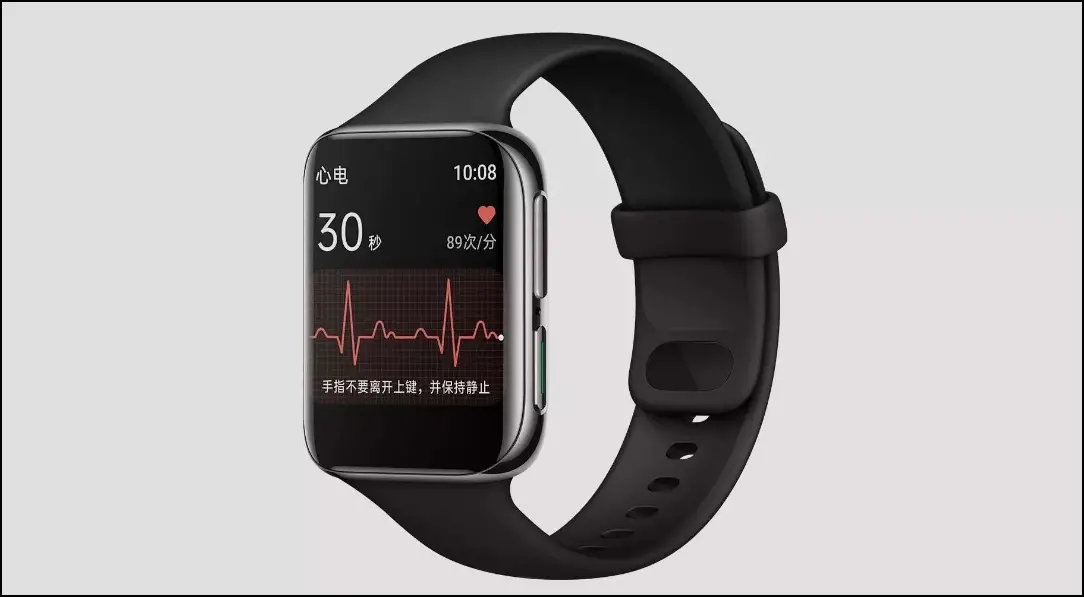
Related | 13 Best Smartwatches with Google Assistant (2022)
What is ECG Tracking on Smartwatches?
Unlike a regular PPG heart rate scanner, ECG or electrocardiogram is not only more accurate but also can detect heart problems such as irregular heart rate rhythm called atrial fibrillation.
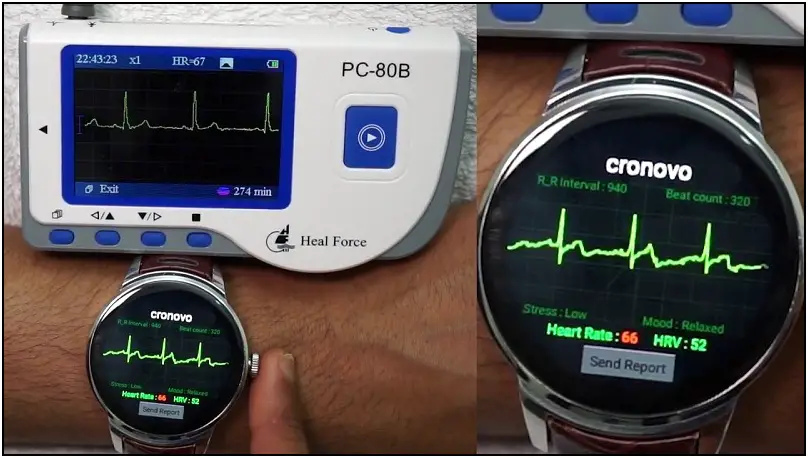
When you start ECG measurement on the watch, it completes a circuit from the heart to your wrist to record the time and strength of the electrical signal that makes the heartbeat. The software then monitors these signals to check whether the upper and lower heart chambers are in rhythm.
If theyre not in rhythm, it could indicate Arrhythmias (irregular heart rhythm). Arrhythmia is a condition where a persons heartbeat is irregular or not in rhythm. Atrial fibrillation (AFib) is a common type that can cause blood clots, heart strokes, or even complete heart failure.
ECG tracking on smartwatches can alert you if your heart rate rhythm is irregular. Remember that ECG tracking or any other health-tracking feature on smartwatches should be used as a mere indication and not as medical equipment. Heres more about how ECG works on a smartwatch.
Best ECG Smartwatches to Measure Irregular Heart Rate Rhythm
We have figured out the best ECG smartwatches to measure irregular heart rate rhythm. Follow up on the article to get the perfect ECG smartwatch for yourself.
Apple Watch (Series 4, 5, 6, 7, 8, and Ultra)
The Apple Watch has been capable of ECG measurement for quite some time now. It has an electrical heart rate sensor along with an ECG app that allows you to take an ECG test anytime anywhere.
You have to put the opposite hands finger on the crown button of the watch for 30 seconds. It will then record the electrical pulses and combine the data to detect if your heart rate rhythm is abnormal.
Here are the Apple Watch models that support ECG tracking:
- Apple Watch Ultra
- Apple Watch Series 8
- Apple Watch Series 7
- Apple Watch Series 6
- Apple Watch Series 5
- Apple Watch Series 4
The new Apple Watch Series 8 and Apple Watch Ultra have Apples latest electrical heart sensor that can measure ECG more accurately and precisely. Apple has also added a temperature sensor in these models that not only can track your skin temperature, but is also helpful for female cycle tracking and period prediction.
Crash detection is another feature that youll find on the 2022 editions of the Apple Watch. These watches are crack resistant, and dust resistant with an IP6X rating. They also include WR50 and WR100 water resistance ratings.
Key Highlights (Apple Watch Series 8):
- Display: 1.61 & 1.9 LTPO OLED Display
- Battery Life: Up to 18 Hours (Up to 36 Hours with Low Power Mode)
- Water/Dust Rating: WR50 & IP6X
- ECG Sensor: Available
- Special Feature: Crash Detection
Key Highlights (Apple Watch Ultra):
- Display: 1.92 LTPO OLED Display
- Battery Life: Up to 36 Hours (Up to 60 Hours with Low Power Mode)
- Water/Dust Rating: WR100 & IP6X
- ECG Sensor: Available
- Special Feature: MIL-STD 810HCertified
Samsung Galaxy Watch (Active 2, 3, 4, 4 Classic, 5, 5 Pro)
Samsung has been offering ECG monitoring on its Galaxy Watch series, starting with Watch Active 2. The current-gen models- Galaxy Watch 5 and 5 Pro equip an evolved and polished version of the same, thanks to the new electrical heart sensor embedded in the BioActive module that helps measure ECG.
Here are the Galaxy Watch models that support ECG measurement:
- Samsung Galaxy Watch 5 Pro
- Samsung Galaxy Watch 5
- Samsung Galaxy Watch 4
- Samsung Galaxy Watch 4 Classic
- Samsung Galaxy Watch 3
- Samsung Galaxy Watch Active 2
The Galaxy Watch 5 and 5 Pro also have a Bioelectrical Impedance Analysis (BIA) sensor that can monitor all your health parameters from body fat percentage to BMI and skeletal muscle weight.
The new Galaxy Watch comes with a Sapphire Crystal Display that is much stronger to prevent scratches. The Watch 5 Pro has a titanium body whereas the normal Watch 5 has an armor aluminum body. It runs on Samsungs One UI based on Google Wear OS supporting all the Google services for the smartwatch.
Key Highlights (Galaxy Watch 5):
- Display: 1.2 & 1.4 Super AMOLED Display
- Battery Life: Up to 40 Hours
- Water/Dust Rating: IP68 + 5ATM
- ECG Sensor: Available
- Special Feature: Fast Charging
Key Highlights (Galaxy Watch 5 Pro):
- Display: 1.19 & 1.4 Super AMOLED Display
- Battery Life: Up to 80 Hours
- Water/Dust Rating: IP68 + 5ATM
- ECG Sensor: Available
- Special Feature: Titanium Body
Fitbit Sense 2
The Fitbit Sense 2 is an advanced health-centric smartwatch that features an ECG sensor. It can track atrial fibrillation and sends high & low heart rate notifications. You can check all the heart health data with the ECG app on your phone.
This smartwatch also features a cEDA scan sensor for stress management, a skin temperature sensor, built-in GPS, built-in Amazon Alexa, a daily readiness score, and over 6 days of battery life.
Key Highlights:
- Display: 1.6 AMOLED Display
- Battery Life: 6+ Days
- Water/Dust Rating: 5ATM
- ECG Sensor: Available
- Special Feature: cEDA Scan
Fitbit Versa 4
The Fitbit Versa 4 is not only a fitness smartwatch but also a productive gadget that supports many utility features. It does not have a dedicated ECG sensor, but it still supports irregular heart rate rhythm notifications which can be used to detect atrial fibrillation.
This smartwatch features built-in GPS, built-in Amazon Alexa, Google apps support including Google Maps and Google Wallet, 40+ exercise modes, over 6 days of battery life, and 5ATM water resistance.
Key Highlights:
- Display: 1.57 AMOLED Display
- Battery Life: 6+ Days
- Water/Dust Rating: 5ATM
- ECG Sensor: Not Available
- Special Feature: Google Apps Support
Google Pixel Watch
The Google Pixel Watch is a new product by the company in the smartwatch industry. It is a high-end smartwatch that features an ECG sensor to track atrial fibrillation and check all heart health data with an ECG app.
Talking about some other features, it has fall detection and emergency SOS, the latest Google Wear OS with most Google services, Exynos 9110 SoC, and Fitbit Health and Fitness support. It also has 2GB of RAM and 32GB of storage.
Key Highlights:
- Display: 1.2 AMOLED Display
- Battery Life: Up to 24 Hours
- Water/Dust Rating: IP68 + 5ATM
- ECG Sensor: Available
- Special Feature: Recycled Stainless Steel Finish
Withings ScanWatch
The Withings ScanWatch is a hybrid smartwatch that has an analog dial with an e-ink display embedded for smart features. It is a clinically validated smartwatch that has an ECG sensor to track atrial fibrillation and check for irregular heart rate rhythm.
This smartwatch features sleep tracking, continuous heart rate tracking, blood oxygen monitoring, 24/7 activity tracking with connected GPS, and 5ATM water resistance. It also has an operating temperature range of 14F to 113F making it usable in extreme cold and hot conditions.
Key Highlights:
- Size: 38mm and 42mm
- Battery Life: Up to 30 Days
- Water/Dust Rating: 5ATM
- ECG Sensor: Available
- Special Feature: Hybrid Stylish Design
COROS VERTIX 2
The COROS VERTIX 2 is a rugged smartwatch that also allows you to measure ECG and track irregular heart rate rhythm with heart rate variability. It is an adventure smartwatch that has global offline mapping and dual-frequency GPS.
This smartwatch has a diamond-like coating with sapphire glass and a titanium body, up to 60 days of battery life in normal use, and up to 180 hours in full GPS tracking mode. It has a 5-satellite navigation system including GPS, GLONASS, Galileo, QZSS, and Beidou.
Key Highlights:
- Display: 1.4 LCD Display
- Battery Life: Up to 60 Days (Up to 180 hours in Full GPS Tracking Mode)
- Water/Dust Rating: 10ATM
- ECG Sensor: Available
- Special Feature: Rugged Titanium Body
Frequently Asked Questions
Q. Is Ecg Better Than Heart Rate Monitor on Smartwatches?
Yes, ECG is far better than a normal heart rate monitor on smartwatches because it tracks your heart rate rhythms and checks if it is going normally or showing variations. ECG measures electrical impulses around the heart that makes the heart beat by creating a circuit from your hand to your heart.
Therefore, ECG provides more accurate and precise data about your hearts health condition as compared to normal optical-based heart rate monitoring.
Q. Can a Smartwatch Detect a Heart Attack?
Smartwatches cannot detect serious heart problems like heart attacks or strokes. Although, ECG smartwatches can monitor your hearts health and notifies you about irregular heart rate rhythm which may cause severe heart problems if not gets treated on time.
Q. What Heart Problems can ECG Smartwatches Diagnose?
ECG smartwatches can detect atrial fibrillation which is the most common type of irregular heart rate. It tracks electrical impulses of your body to generate heartbeats and notifies you if there is something wrong happening in your hearts health. It can give you an idea of the actual condition and alert you to consult a doctor immediately if your heart has any signs of atrial fibrillation.
Q. How Accurate is ECG on a Smartwatch?
The Apple Watch is the benchmark for accurate health tracking with almost 99% of accuracy in health-tracking. And smartwatches like Withings ScanWatch are clinically validated which makes them more usable for ECG tracking.
Although the ECG smartwatches are accurate enough, you should not consider them as medical equipment and dont rely on them completely. If it shows any sign of irregular heart rate rhythm, you should visit a doctor straight away.
Q. How Does a Smartwatch ECG Differ from an ECG Monitor in Hospital?
The standard ECG monitor records electrical signals of your heart using waveforms with 12 leads. Whereas, the smartwatch ECG only has a single lead which can only monitor basic heart function. Therefore, smartwatch ECG is less reliable and cannot replace medical-grade equipment.
The standard ECG monitor that doctors use is more sensitive and specific for detecting atrial fibrillation as compared to a smartwatch ECG.
Q. What to Do if You Diagnose Heart Problem With ECG on a Smartwatch?
If you take an ECG test on your smartwatch and it shows any signs of atrial fibrillation, then you dont need to panic, you can visit a doctor and show the ECG results whenever you have time. But, if you are feeling unwell and are getting alerts, you should consult a doctor at the earliest possible time.
Wrapping Up
These were the top smartwatches with ECG to measure irregular heart rate rhythm. We have also answered the most common questions about ECG on smartwatches that you may have in your mind. Do share your take on ECG smartwatches in the comments below, and stay tuned with WearablesToUse for more informative articles!
Related:

